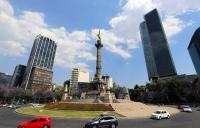Latin America prepares for sharp drop in FDI amid coronavirus pandemic

The fallout from the pandemic looks set to stall trade and investment to Latin America.
Foreign direct investment to Latin America and Caribbean in January and February 2020 was 28% less than the same period in 2019, according to fDi Markets. This slow start to the year will only be exacerbated by as the health crisis worsens.
Many of the FDI projects in early 2020 were in renewable energy, which saw unprecedented investment in 2019, finds fDi Markets. Foreign investment in renewables is likely to stall due to the pandemic, as site selection and construction become unfeasible due to restrictions on movement, while investor capital gets redirected towards domestic damage control, rather than foreign expansions.
Governments in Latin America have taken measures to contain the pandemic. Travel bans for ‘non-residents’ have been instituted in most countries across Latin and Central America, however, Mexico has not yet fully implemented an official ban, while Puerto Rico has only closed maritime travel.
In order to limit the spread of the virus within domestic borders, countries such as Colombia, Ecuador and Venezuela are also limiting non-essential domestic movement. Since March 25, major Colombian airline Avianca has cancelled four out of five domestic flights, according to law firm Cleary Gottlieb.
Decreased investment and trade from the US and Chinese – Latin America’s key commercial partners – could cause a serious recession, says a recent post from the United Nations Development Programme (UNDP). Trade between China and Latin America increased from $12bn in 2000 to $306bn in 2018, making China the continent’s second trading partner. China represents 28.1% of Brazil’s exports, 10.5% of Argentina’s exports and 32.4%of Chile’s exports, says the UNDP.
Particularly fragile countries such as Venezuela, which also relies heavily on Chinese investment, are at a high risk, said Luis Felipe López-Calva, UN assistant secretary-general and UNDP regional director for Latin American and the Caribbean, in a public statement.
“Foreign direct investment and loans from China have increased over the past decade; China’s growth in the first quarter of the year is expected to fall sharply and recover later in the year. These shocks will likely be translated into Latin America and the Caribbean through trade, commodity prices and foreign direct investment,” said Mr López-Calva.
Global FDI flows are expected to drop by 30% to 40% across all sectors, according to the United Nations Conference on Trade and Development. The extent to which Latin America’s more vulnerable countries will be hit by this and Covid-19, remains to be seen.

Global greenfield investment trends
Crossborder investment monitor
|
|
fDi Markets is the only online database tracking crossborder greenfield investment covering all sectors and countries worldwide. It provides real-time monitoring of investment projects, capital investment and job creation with powerful tools to track and profile companies investing overseas.
Corporate location benchmarking tool
fDi Benchmark is the only online tool to benchmark the competitiveness of countries and cities in over 50 sectors. Its comprehensive location data series covers the main cost and quality competitiveness indicators for over 300 locations around the world.
Research report
fDi Intelligence provides customised reports and data research which deliver vital business intelligence to corporations, investment promotion agencies, economic development organisations, consulting firms and research institutions.
Find out more.




